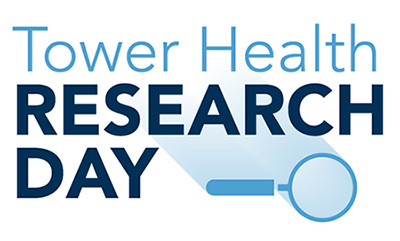Keywords:
PD-1 inhibitor, Adrenal insufficiency, checkpoint inhibitors
Start Date
14-10-2021 10:45 AM
End Date
14-10-2021 11:45 AM
Recommended Citation
Oke, Ibiyemi, "Delay in diagnosis of PD-1 Inhibitor induced Secondary Adrenal Insufficiency" (2021). Tower Health Research Day. 5.
https://scholarcommons.towerhealth.org/th_researchday/2021/postersessionII/5
Delay in diagnosis of PD-1 Inhibitor induced Secondary Adrenal Insufficiency
Introduction
Immune checkpoint inhibitors, including PD-1 inhibitors, were initially approved to treat metastatic melanoma but are now increasingly being used for many different types of solid organ malignancies. Despite the significant clinical benefits, they are associated with immune-related adverse events, including dermatologic, gastrointestinal, hepatic, and endocrine diseases. The most critical endocrinopathy associated with PD -1 Inhibitor is adrenal insufficiency, and it requires prompt diagnosis and management to avoid fatality.
Case presentation
We present the case of a 78-year-old woman with a history of gastric bypass, alcohol use, and stage III (T3N1bM0) colon adenocarcinoma status post hemicolectomy and adjuvant Capecitabine with metastatic recurrence in the lungs. She was treated with Nivolumab after her pulmonary metastases progressed on FOLFOX chemotherapy. She had been hospitalized multiple times on account of worsening dry heaving, reduced oral intake, and fatigue with workup negative for cancer progression or gastrointestinal obstruction. She again presented to the hospital with progressive generalized weakness, fatigue, headache, lightheadedness, nausea, myalgia, and reduced oral intake. Her vitals: blood pressure 171/88mmHg, pulse 83/minute, temperature 36.4 °C, and oxygen saturation of 98% in room air. Her laboratory results showed Na 128mmol/L, K 3.4mmol/L, Cr 0.52mg/dL and blood sugar 42mg/dL. Her chemotherapy was withheld. However, morning cortisol was low at 2.2µg/dL, and the ACTH stimulation test was positive (baseline cortisol 1.4µg/dL, 7.0 µg/dL at 30 minutes, and 9.7µg/dL at 60 minutes). A diagnosis of adrenal insufficiency possibly secondary to Nivolumab use was made. She was started on Hydrocortisone, and Nivolumab was discontinued. At her follow-up visit, her symptoms had resolved.
Conclusion
Immune checkpoint inhibitors have a unique side effect profile of immune-related adverse events, the most critical of which is adrenal insufficiency. Prompt recognition, diagnosis, and treatment of adrenal insufficiency are essential to prevent life-threatening adrenal crises. Physicians need to have a high index of suspicion for adrenal insufficiency in patients on PD-1 inhibitors presenting with nonspecific nausea, vomiting, and fatigue to prevent life-threatening complications.



Comments
3rd Place Award - Case Report Poster Presentation